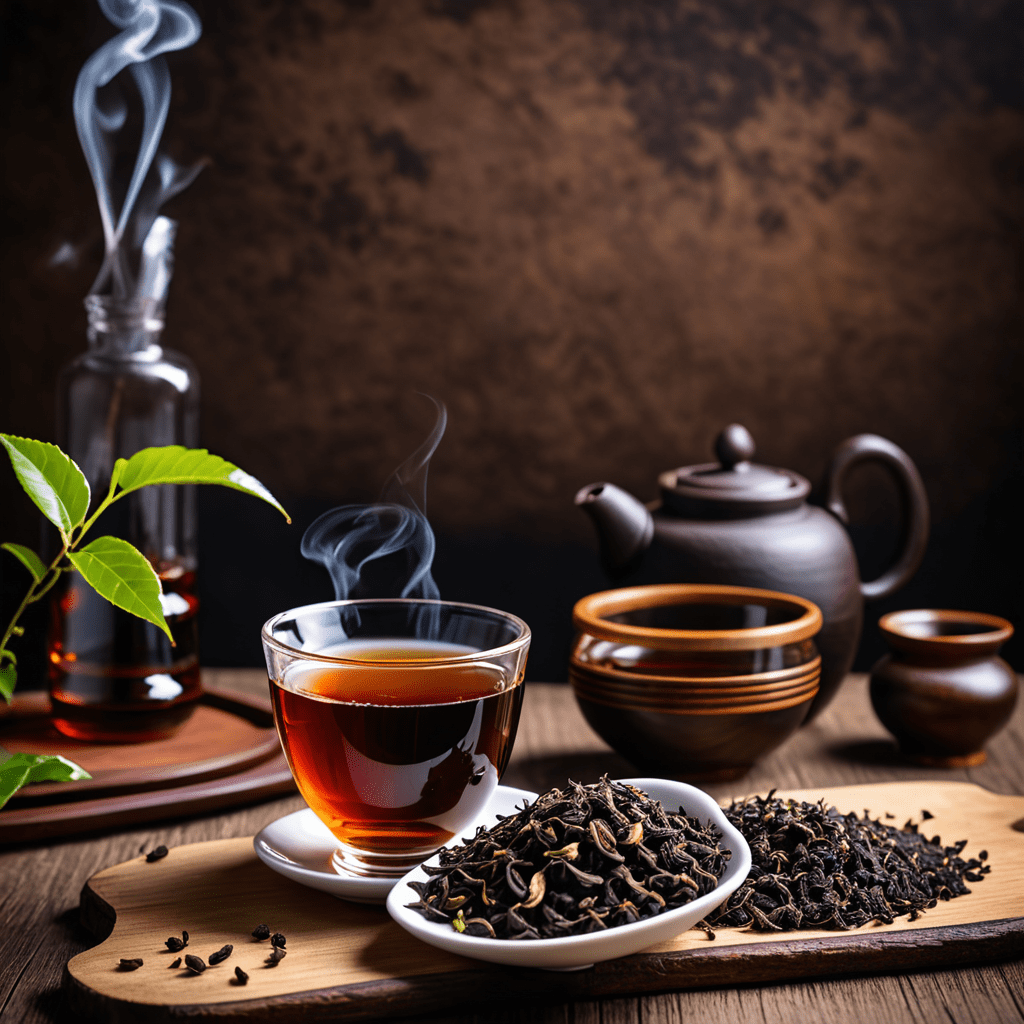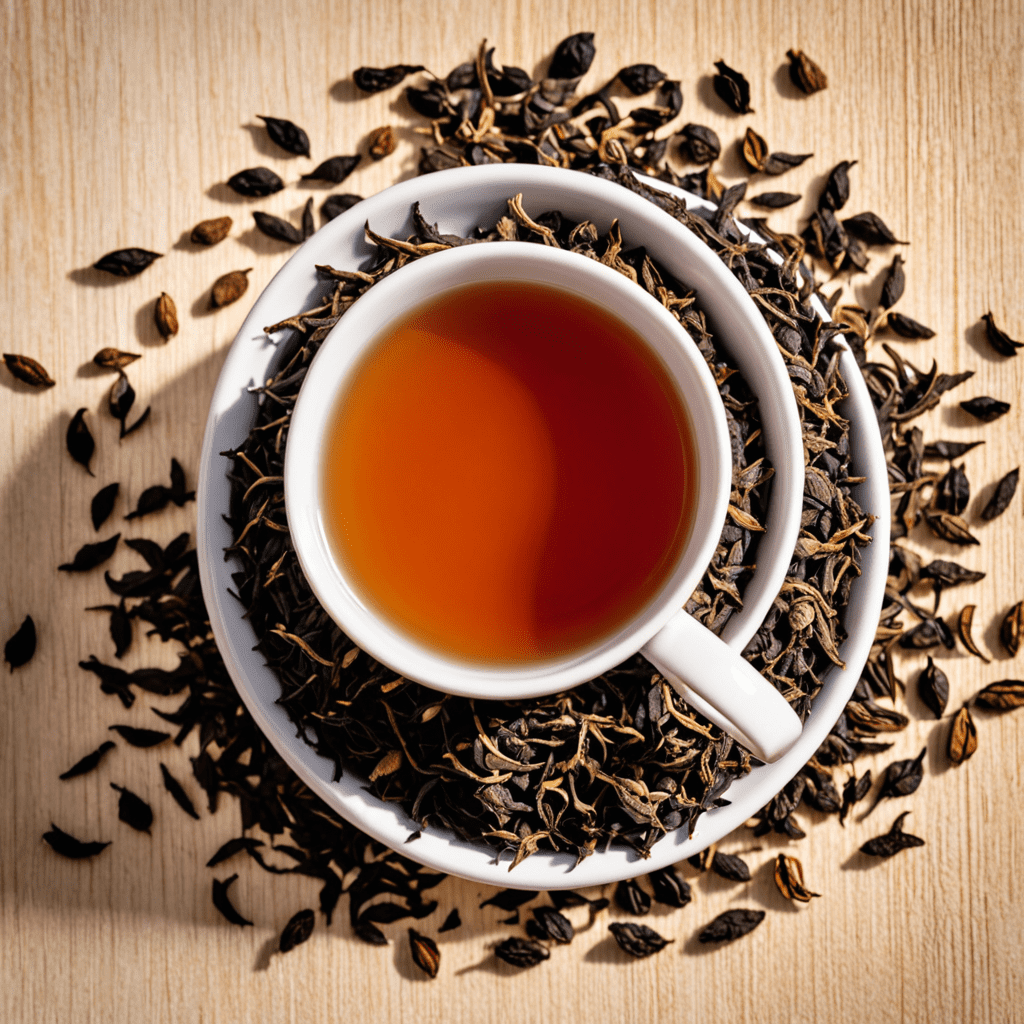The Best Ways to Treat Colds and Flu with Tea
Introduction
There’s nothing quite as comforting as a warm cup of tea when you’re feeling under the weather. While tea may not cure a cold or flu, it can definitely help alleviate some of the symptoms and provide relief. Tea has been used for centuries in traditional medicine to treat various ailments, including colds and flu. Its natural properties can soothe a sore throat, ease congestion, and boost the immune system. In this article, we will explore the key elements of tea for colds and flu, provide practical tips, and offer suggestions for incorporating tea into your cold and flu treatment.
Key Elements
When it comes to tea for colds and flu, there are several key elements to keep in mind:
- Herbal Teas: Herbal teas, such as chamomile, peppermint, and ginger, are excellent choices for colds and flu. They can help soothe a sore throat, ease congestion, and promote relaxation.
- Antioxidants: Tea, especially green and white tea, is packed with antioxidants. These powerful compounds can help strengthen the immune system and reduce inflammation.
- Hydration: Staying hydrated is crucial when you’re sick. Drinking plenty of tea can help replenish fluids and keep you hydrated.
- Steam Inhalation: Inhaling the steam from a cup of hot tea can help open up congested airways and relieve nasal congestion.
- Comforting Ritual: The act of making and drinking tea can provide a sense of comfort and relaxation, which can be beneficial when you’re feeling unwell.
Tips for Tea for Colds and Flu
Here are some practical tips to keep in mind when using tea for colds and flu:
- Choose the Right Tea: Opt for herbal teas, such as chamomile, peppermint, and ginger, as they offer soothing and healing properties. Green and white teas are also great choices due to their high antioxidant content.
- Add Honey and Lemon: To enhance the healing properties of your tea, add a teaspoon of honey and a squeeze of lemon. Honey is known for its antimicrobial properties, while lemon provides a vitamin C boost.
- Sip on Hot Tea: Drinking hot tea can help soothe a sore throat and ease congestion. Sip on your tea slowly and enjoy the warmth it brings.
- Stay Hydrated: Apart from drinking tea, make sure to drink plenty of water to stay hydrated. You can alternate between sipping on tea and water throughout the day.
- Avoid Caffeine: While black tea contains caffeine, it’s best to avoid it when you’re sick. Caffeine can interfere with sleep and dehydrate the body, which is counterproductive when trying to recover from a cold or flu.
Incorporating Tea for Colds and Flu
Here are some ideas for incorporating tea into your cold and flu treatment:
- Tea Steaming: To relieve congestion, pour hot tea into a bowl, place a towel over your head, and inhale the steam. The steam will help loosen mucus and clear nasal passages.
- Throat Soothing Tea: Brew a cup of chamomile or licorice root tea and add a teaspoon of honey. Sip on this tea to soothe a sore throat and ease discomfort.
- Ginger Tea: Ginger is known for its anti-inflammatory properties, which can help reduce congestion and alleviate symptoms of cold and flu. Brew a cup of ginger tea by steeping fresh ginger slices in hot water for 10 minutes.
- Echinacea Tea: Echinacea tea is believed to boost the immune system and help fight off infections. Drink a cup of echinacea tea daily to support your body’s defenses against cold and flu viruses.
- Tea with Elderberry: Elderberry is another immune-boosting ingredient that can help reduce the duration and severity of cold and flu symptoms. Look for teas that contain elderberry or brew your own by infusing dried elderberries in hot water.
FAQ about Tea for Colds and Flu
Q: Can I drink tea for colds and flu if I have a fever?
A: Yes, you can still drink tea if you have a fever. However, make sure the tea is not too hot as it may further elevate your body temperature. Opt for warm or room temperature tea instead.
Q: Are there any teas I should avoid when I have a cold or flu?
A: It’s best to avoid caffeinated teas, as caffeine can interfere with sleep and dehydrate the body. Also, be cautious with herbal teas that may interact with medication or have potential side effects. If you’re unsure, consult with your healthcare provider.
Q: How often should I drink tea when I have a cold or flu?
A: There is no specific rule for how often you should drink tea. Listen to your body and drink as much tea as you feel comfortable with. Aim to stay hydrated and incorporate tea into your routine to experience its potential benefits.
Q: Can children drink tea for colds and flu?
A: Yes, children can drink certain teas for colds and flu, but it’s important to choose caffeine-free and age-appropriate herbal teas. Consult with a pediatrician before introducing tea to your child’s regimen.
Tea can be a soothing and effective remedy for colds and flu. By selecting the right teas, incorporating them into your routine, and following these tips, you can help reduce symptoms and support your body’s natural healing process. So, the next time you feel under the weather, reach for a cup of tea and let its warmth and healing properties bring you comfort.

